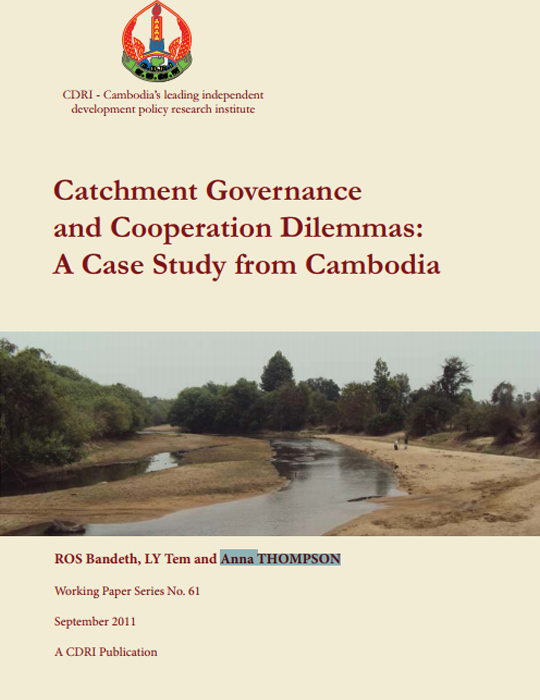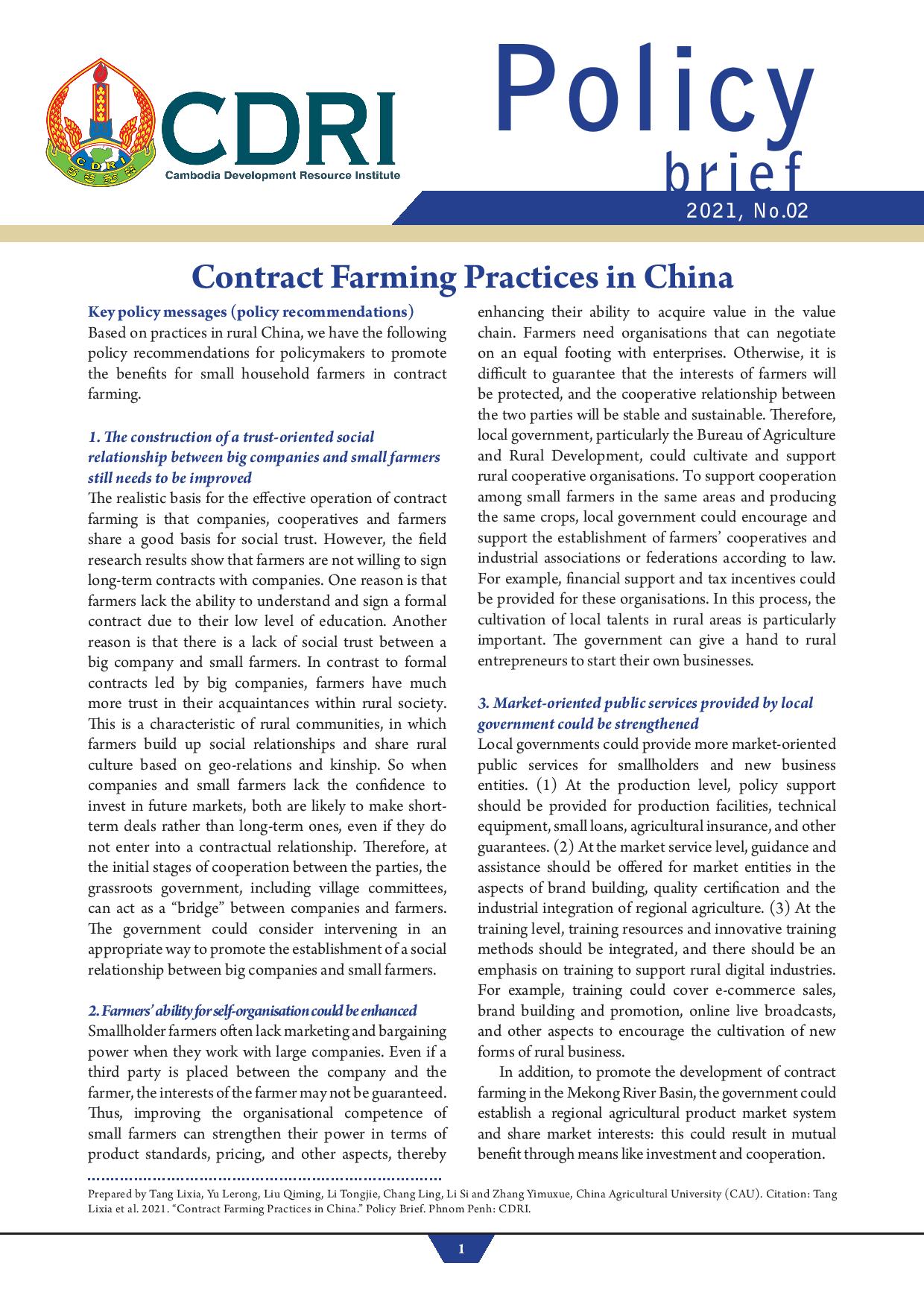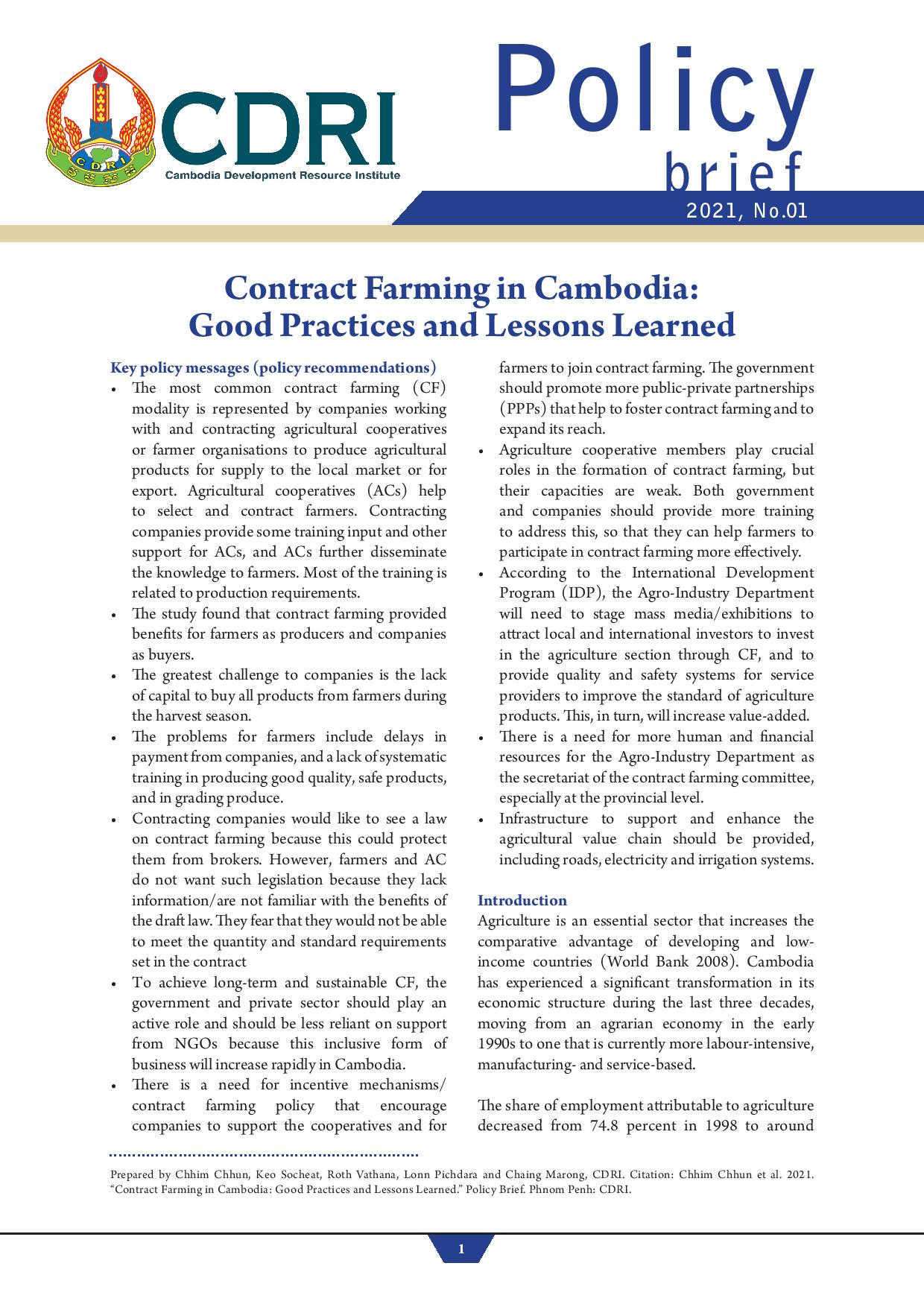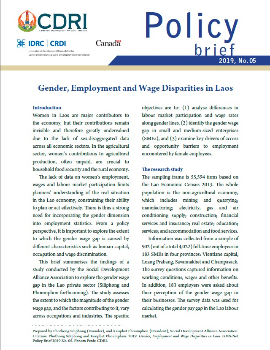
Catchment Governance and Cooperation Dilemmas: A Case Study from Cambodia
Keyword: Integrated catchment management, stakeholder cooperation decentralisation and deconcentration, water governance reform, institutional coordination barriers
Abstract/Summary
Integrated
Catchment Management (ICM) is a recent ideal approach to be introduced into the
Cambodian national strategy on water management to ensure better planning and
management of water and other related resources in a catchment. A new
multi-level catchment body or a committee is soon to be established as a
result. Integral to ICM is cooperation between stakeholders. This study seeks
to investigate the gap between the ideal principles of ICM and the actual
degree of cooperation in Cambodia to identify ways in which ICM can be
effectively introduced into water policy in Cambodia within the framework of
decentralisation and deconcentration (D&D) reform.
Based on a case in
Kompong Chhnang, the findings of this study reveal that even though the concept
of ICM is quite new in the country, Cambodia evidently has an administrative
foundation that to some extent works in support of ICM in the current governance
system. This study concludes that Cambodian stakeholders across different
levels still largely operate independently and have few incentives to cooperate
at catchment scale. Several entrenched factors that hold back cooperation
include cultural traits, lack of trust, overlapping mandates, centralisation,
capacity issues, and lack of available information on land demarcation, land
tenure and hydrology. Our study concludes that to reduce the gap, several
mechanisms are required, including: 1) aligning the ICM initiative with the
current governance system; 2) building collective identity among farmers across
schemes; 3) clarifying roles and responsibilities, improving trust and
strengthening organisational capacity of stakeholders; 4) pushing deconcentration
reform further; and 5) providing sufficient information on land demarcation,
land tenure and hydrology.
DOI: https://doi.org/10.64202/wp.61.201109



